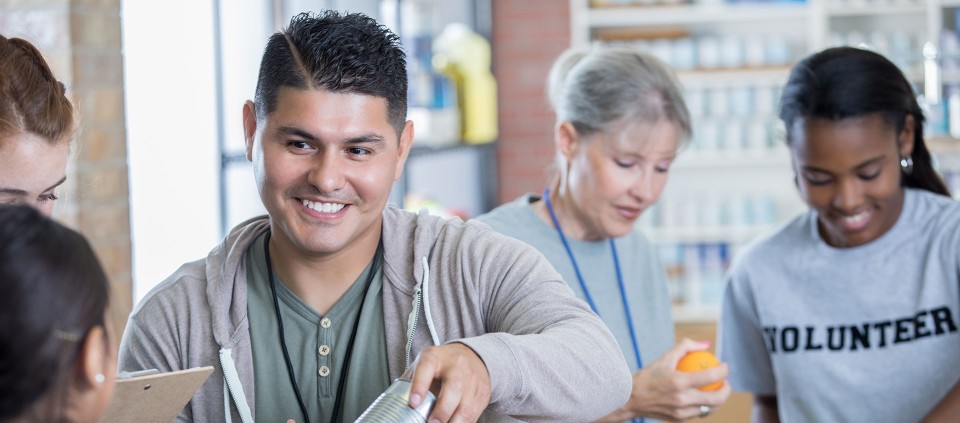Volunteering for a Longer Life

When I think about improving my overall health and increasing my longevity, I suspect I’m not that different from most. I imagine making physical adjustments: practicing yoga or another form of fitness more regularly, eating more vegetables and less sugar, drinking more water, taking those trusty fish oil supplements, and getting enough sleep.
But I know there’s more to health than simply taking care of my body. I know I need to make emotional and spiritual adjustments, too: developing a more consistent spiritual practice, maybe meditating or praying, and keeping worry, anxiety, and other stress-inducing emotions from running amok by journaling, deep breathing, or working with a therapist of some sort.
Throughout my life, I’ve engaged in all of these health-promoting activities with varying levels of consistency. Not surprisingly, I suppose, I’ve felt the benefits to varying degrees. But there’s a health-promoting activity I haven’t tried, perhaps because I’ve more often approached wellness through a self-oriented framework. According to a recent study on health and longevity, though, it seems I have another adjustment to make. If I want to live a longer, healthier life, I need to spend some time not only focusing on taking care better of myself, but on taking care of others.
A team of researchers from several institutions compiled data on more than 70,000 seniors and found that “organizational volunteering” (in a soup kitchen or a neighborhood cleanup group, for example) significantly reduced mortality risk, by 24 percent among those who volunteered regularly.
Apparently, when you help strangers in need, the concomitant feelings of altruism cause your brain to produce more feel-good chemicals, like oxytocin and progesterone, which lower stress and reduce harmful inflammation.
None of this surprises Kripalu faculty member Vandita Kate Marchesiello. “We’re hard-wired to experience delight when we see others receive pleasure or succeed,” she says. “It’s only natural that our mood is elevated. When we pay it forward, there’s an endorphin release.”
I’m not much of a group person, so I’ve never volunteered in an institutional setting. I’m the type that’s more apt to assist an individual, like a friend in need. While I imagine that health benefits arise from helping out friends or loved ones, too, perhaps there’s a deeper sense of satisfaction to be had when we give of our time to strangers. When we scratch people’s backs to alleviate their discomfort but not because they might later scratch ours, maybe we actually produce more feel-good chemicals. Helping other human beings simply because they are human beings—fragile and vulnerable and in need, just like us—may engender a deeper sense of connection not just to our small tribe, but to the human race and the world at large. And that sense of connection to something greater than ourselves is perhaps as integral to our health and well-being as 10 servings a day of leafy greens.
Micah Mortali, Dean and Founder of the Kripalu School of Mindful Outdoor Leadership, doesn’t disagree, but believes volunteering is health-promoting for even deeper reasons. He says that volunteering with an attitude of offering selfless service develops not just more compassion but also equanimity. “When you’re present with the activity and you do your best, and when you let go of the attachment to an outcome, like praise or a reward, you develop a greater ability to be with life as it is,” he says.
Over the course of my adult life, I’ve lived in different places—New York City, Burlington, Vermont, Los Angeles, Boston. I’ve made a number of friends in these locales and I’ve had a pretty varied career, but I’ve never felt a strong sense of community. I can go to the gym; I can eat organic produce; I can do a better job of managing thoughts and feelings, but maybe I’m leaving out an important component in my self-care. Maybe if I want to feel better and be healthier, I need to step out of my world for a few hours a week and give of my time to others.
It’s one thing to feel compassion for those in need; it’s another to put compassion into action. There are high school kids in need of mentors, elderly people in need of companionship, and political candidates in need of support. Even the most self-sufficient among us can still benefit from a helping hand—one that pays dividends. It sure sounds like the ultimate win-win.
Portland Helmich has been investigating natural health and healing for more than 15 years, as a host, reporter, writer, and producer.
Full Bio and Programs